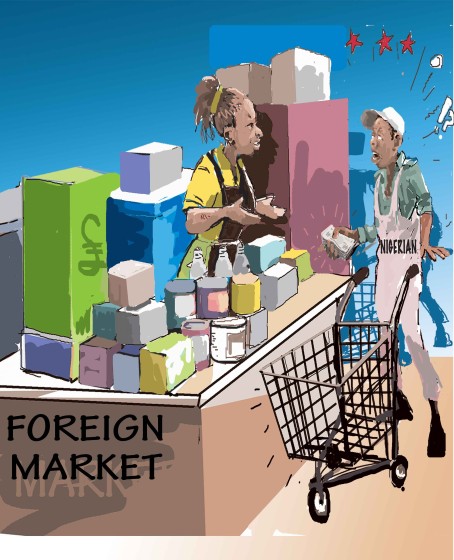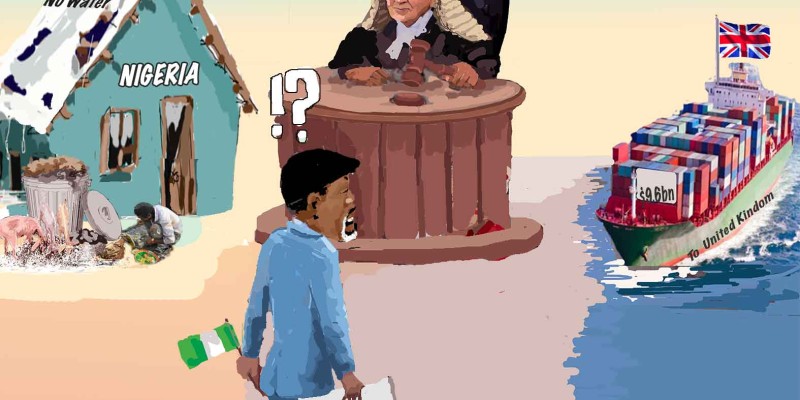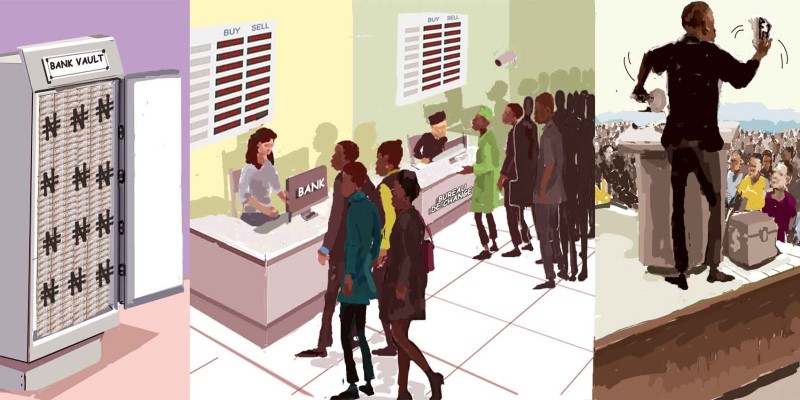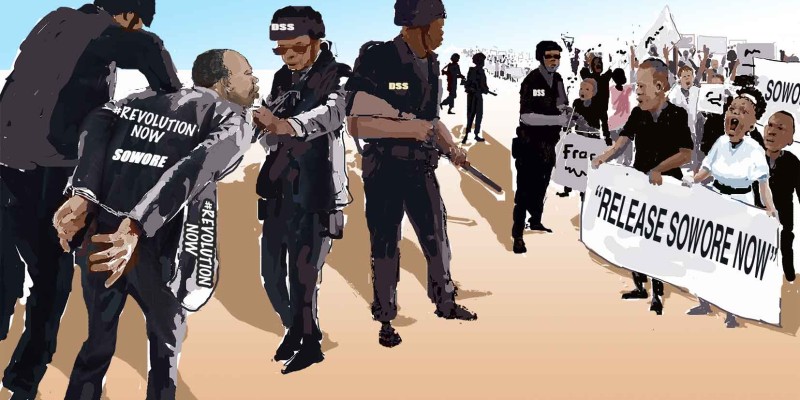THE MERITS & DEMERITS OF A WEAK NAIRA IN SPITE OF INCREASING DOLLAR RESERVES!
By: Sir Henry Olujimi Boyo (Les Leba) first published in April 2005
INTRO:
Last week, this column republished “Governors’ Demand for Dollar Payments: The Way Forward!” Regrettably, this was the very last article written by the Late Sir Henry Boyo before his sudden death. It discussed the disregard for the law on the part of the CBN and the steps taken by the author to file a case against the CBN at Femi Falana’s chambers. This republication can be found using the below link.
(See www.betternaijanow.com for this series and more articles by the Late Sir Henry Boyo)
Today’s republication was written as far back as the year 2005. Due to the fact that the message construed remains relevant, it was necessary for this article to resurface once again. The rates of exchange discussed in the article below highlight the dire economic situation of Nigeria currently, because it is evident that economic decline is far from over. The article succinctly describes the merits and demerits of a weak Naira (as the title states), to provide a clear understanding of why inflation is the root of the myriad of issues plaguing the nation.
As you read through the below article taking note of previous events and rates, keep in mind its initial publication (2005).
………………………………………………………………………………………………..........................................................................................................................................................
The relative strength of a country’s currency is a factor of variables, prominent amongst which is its Purchasing Power Parity (PPP) and the ability to meet the payment obligations for its imports over time. In other words, the PPP principle attempts to equate the local cost of a representative basket of goods in one country against the cost of the same basket of goods in another country. The content of the basket is generally weighted in favour of food, shelter and transportation; i.e., the basic components for sustenance of life! The equation is further embellished with the balance of payments situation between both countries; i.e., the demand of one country’s currency (or goods and services) against that of another country.
The next result from these computations will determine the rate of exchange between countries. In the event that the universal parameters of these equations are respected, we would have an appropriate exchange rate system between countries; however, failure to respect these parameters of exchange rate determination to the letter will result in a rate imbalance either positively or negatively! There are indications that the framework for determining the naira exchange rate to say the dollar, the major currency for our exports, is defective and has consequently induced a weak rate of naira against the dollar.
The major defect in the current exchange rate framework is the monopolistic process of converting the dollar revenue into naira before sharing. The CBN controls 85% of the export dollar revenue and also controls the supply of naira to the market; a veritable example of a market in chains! The net result of this defective market framework is a grossly undervalued naira. We will now evaluate the advantages and disadvantages of a weak naira in the face of rising external reserves.
Merits of a Weak Naira
Nations with a strong industrial base with a capacity to produce excess goods and services relative to their immediate requirements recognise the value of a relatively weaker currency against that of their major competitors. The net effect of a weaker currency in this scenario is to make the goods produced from the country with the weaker currency cheaper than those of competition. This, as would be expected would influence the choices of consumers and consequently improve the net export earnings of the country with a weaker currency. For example, the United States Monetary Authorities are not in a hurry to restrain the fall of the dollar against the Euro as this has made US consumer goods to be much cheaper than their European counterparts with positive results in the US balance of payments position against her major European competitors. In this manner, industries in the US can expand production with the attendant salutary effects of increased employment and income at the expense of European interests. Thus, universally, weaker exchange rates, all things being equal, are adopted to stimulate domestic exports where there already exists a capacity to produce surpluses; in other words, after domestic demands have been satisfied.
In view of the above analysis, it is clear that the Nigerian situation does not fall within the same ambit as the American industrial and commercial reality. In the first place, we have not satisfied domestic demand for essential goods and services, neither do our industries have the capacity and the enabling environment to produce surpluses for export. What, with interest rates over 20% inadequate infrastructure and unsteady government policies, we cannot expect an expanding industrial base. It is therefore clear that in our case, Nigeria has nothing to gain from a weak national currency, since our major export commodity is denominated in dollars and the demand and supply of crude oil is not in any way influenced by the purchasing power value of the local currency, the Naira! In other words, if the naira was to exchange for N1,000 = $, this would in no way affect the demand for crude oil but life would become unbearable as a result of inflation domestically.
Demerits of a Weak Naira
For most Nigerians, it would require no effort to list the major disadvantages of a weak naira especially in the face of increasing export revenue. The reality that the naira is grossly undervalued is incontestable. Once we accept the standard of the purchasing power parity as a tool for determining exchange rate, we will observe that, while for example, the so-called common man in Nigeria can pay the sum of N100 (one hundred naira) for a lunch of eba & egusi soup with some meat, or a plate of oil cooked beans with dodo, his counterpart in the US or the UK would need between $5-$10 to fill his stomach. Other such faithful comparisons exist in the areas of housing, education, health and transportation.
Furthermore, our current reserves of over $20 billion dollars will cover over 20 months of imports against the accepted standard of 3-4 months imports cover demanded by the West African Monetary Zone guidelines. It is odd that seven years ago, we had reserves of less than $5 billion and the naira exchange rate to the $ was N80, but with current reserves of $20 billion, our exchange rate has remained ‘stable’ at about N133. this is certainly an anomaly!
The exodus, of the young and educated sons and daughters of Nigeria, is the most painful demerit of our weak naira. We struggle and make sacrifices as poor as we are as a nation to train and educate our children, only for them to abandon their country in search of dollars after their training. In the days of the slave trade, our people had to be forcibly removed to do these jobs that our well-educated children now trek across deserts and cross oceans in decrepit canoes to do.
A grossly undervalued naira has ruined industrial prospects with ever-increasing costs of raw material imports. The collapse of industrial establishments and the attendant loss of jobs and income are traceable to a weaker naira.
New equipment, machinery and transportation costs have shot beyond the reach of most entrepreneurs. Industries now patronize old/refurbished machinery while our people are now forced to patronize ‘tokunbo’ cars in varying states of depreciation. In other words, we can only use our hard-earned money to buy up the liabilities of the developed world, and we are simple enough to celebrate whenever we can make such poor bargains.
The grossly undervalued naira is responsible for our low ratings as the third poorest nation in the world; a claim that has been rightly contested by no less a person than President Obasanjo himself! The truth is that we are not poor, it is the poverty index predicated on a weak N/$ rate that makes us appear to be poor!
A grossly undervalued naira is a catalyst for capital flight from our shores. The abiding fear that the naira would suffer further devaluations ensures that less and less investors would want to keep their money in naira, but would prefer to safeguard their investments/loots in a stronger and more stable currency.
In conclusion, the CBN currently maintains that the naira is stable at about N133=$1. this claim is certainly untrue. The truth is that the naira rate has refused to harden in spite of our increasing dollar earnings; thus, the naira to dollar rate would better be described as RESISTANT to market forces rather than a claim of stability.
Save the Naira, Save Nigeria!!







